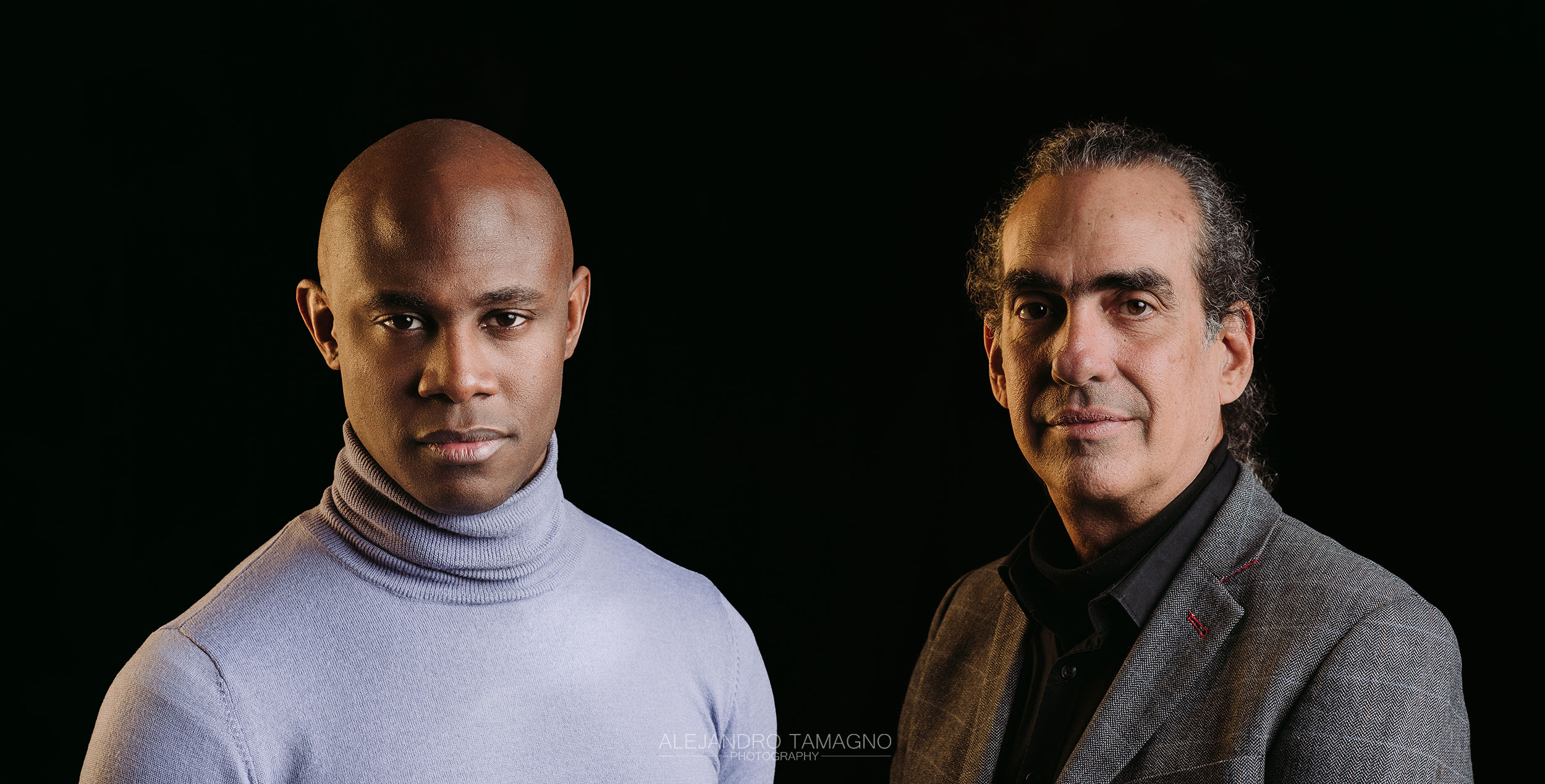CULTURAL CLOSE-UPS, EDUARDO MARTÍN & AHMED DICKINSON TEN YEARS ON, BY ADRIENN GECSE
 Thursday, March 28, 2024 at 1:59PM
Thursday, March 28, 2024 at 1:59PM 
15 years ago I wandered into London’s Brunei Gallery for a free concert. Little did I know that this seemingly ordinary event would one day lead me to organise a trip to Cuba. The time came this year but then, as a start, Ahmed Dickinson Cárdenas, a Cuban guitar virtuoso took to the stage.
He is labelled as a classical musician on major platforms and in various interviews and reviews, but it would be a mistake to pigeonhole him too much, because one label doesn’t suffice to describe his work. He proves time and again that he doesn’t let himself be confined to a certain genre and is very much open to playing for the most varied audiences, and he participates in the most uplifting musical projects. Considering how diverse the art of Cuba is, it’s no surprise. His work no doubt is an imprint of his background. Bringing together various influences and cultures is a trait that is easy to notice in his decades-long career.
The London-based Cárdenas is an emblematic representative of the Cuban classical guitar movement. He graduated from the Instituto Superior de Arte (Havana), the Royal College of Music, and the Guildhall School of Music and Drama. He has received prestigious scholarships, past and present, played in many of the UK’s most well-known venues and beyond, but he doesn’t seem to be resting on his laurels for long.
He dedicated his first album to Ñico Rojas, a hydraulic engineer by profession, who, not incidentally, was a devoted classical guitarist. Rojas was one of those who created the filinmovement in the 1940s. These jazz-influenced Cuban rhythms quickly spread to Mexico, New York, and Puerto Rico, then on to South America, and remained popular until the early ’60s.
Cárdenas spent a decade working with Rojas, transcribing his previously unpublished works, which goes beyond sharing a few compositions on an album. He created and made a material available that recorded and preserved a major musical movement of Cuba that only started withering after the revolution (1953-59). Then, because of the new regime and circumstances, people needed new styles and content in place of romantic songs. The transcribed materials are a treasure trove for listeners, musicians, and ethnomusicologists alike.
One other major collaboration of Cárdenas also started in Cuba, the one with the Grammy nominee composer and acclaimed guitarist, Eduardo Martín, his former mentor. 2024 marks the 10th anniversary of their shared journey and on this occasion, they will embark on a 30-date tour, this time focusing primarily on UK venues.

Reader Comments